'Gather 100 people in a room and keep giving money to random opponents', gradually creating a difference between rich and poor

by Tax Credits
What if you collect 100 people with $ 100 in one room and give $ 1 to each randomly selected person? If you give Mr. A to Mr. B, Mr. B to Mr. C, Mr. C to Mr. D, and so on, each of them will go around and all will be ± zero, but in reality they were randomly selected. Since you will give it to the other party, the more opportunities you have to give money, the more biased you will be, that is, the difference between rich and poor.
When random people give money to random other people | Quomodocumque
https://quomodocumque.wordpress.com/2017/06/27/when-random-people-give-money-to-random-other-people/
This assumption was conceived by Uri Wilensky, who specializes in education science, computer science, and complex systems at Northwestern University. As a result, it seems reasonable that Mr. A will pass to Mr. B, Mr. B to Mr. C, and so on, but it will settle down to a place that is more or less close to the same value. It seems that the answer was the same even if five people with doctoral degrees thought about it.
However, when you actually try it, there is a real bias.
The graph below shows the simulation process of '45 people with $ 45 give $ 1 to someone for each count'. The vertical axis shows the amount of money you have, the orange on the top is simply a graph arranged in order of subjects, and the green on the bottom is a graph arranged in order of amount. After 51 exchanges from the start, the green graph shows that permutations are definitely born.
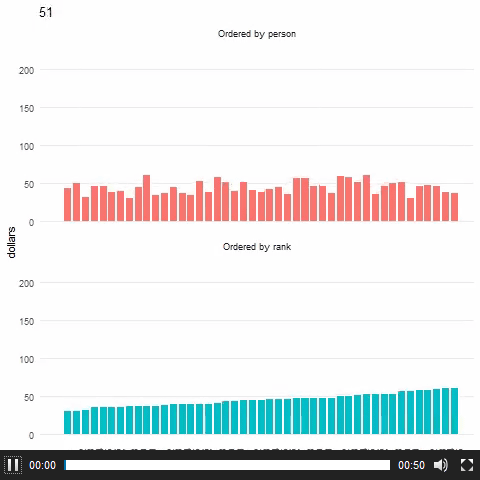
This is the one that exceeds 500 times. The person on the far right of the orange has become $ 0.
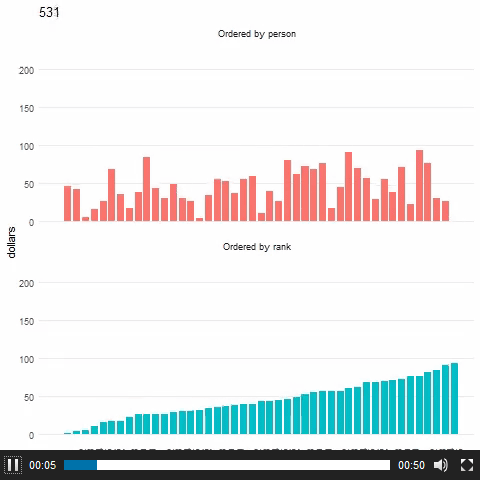
Where it exceeds 1200 times. The person who was 0 dollars earlier has revived, but it has not returned to the original 45 dollars yet. On the other hand, some people have exceeded $ 100.
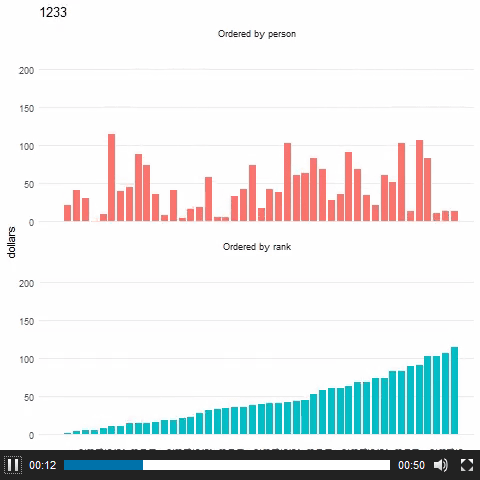
As 3000 times approached, the top reached $ 150.
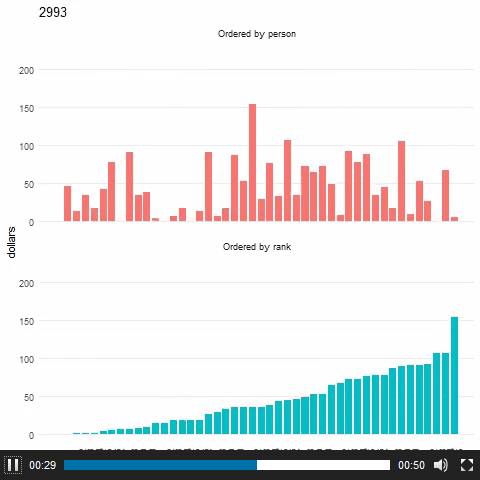
Over 3600 times, top to $ 200.
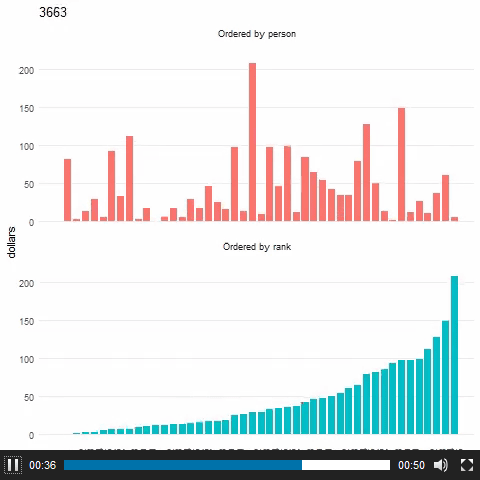
The state near the last is like this. The difference was that 14 people were over $ 50, while the remaining 31 were less than $ 50, even though everyone originally had $ 45.

This is a result within 5000 trials, and the person to give is always randomly selected, so it is not possible for a $ 200 person to stay at the top, but it seemed harmless '$ 1 to a random opponent' It is interesting to note that the act of 'passing' resulted in inequality.
Related Posts:
in Note, Posted by logc_nt







